So you're looking for companion plants for cantaloupe? While we understand that there are lots of reasons why gardeners practice companion planting, it is important to grow the right companion plants for maximal benefit.
There are plants that are safe to grow around cantaloupe, and there are also plants that would affect your cantaloupe. Plants like corn, squash, pumpkin, collards, oregano, or borage can grow very well with cantaloupe.
However, there is more to know about cantaloupe companion plants, such as what makes these plants safe and considered fit to grow in proximity with cantaloupe?
We all know companion planting thrives due to pest control, but is there anything else you should know?
Table of Contents
Best Companion Plants For Cantaloupe
It's not just cantaloupes, but many other plants are affected by pests and other factors that hinder their full yield.
In a bid to control these natural pests, farmers and gardeners lookout for "companion plants" proven to help control pests, instead of using toxic chemicals.
Sacarstically, this can be likened to how humans choose their life companion (partners); you have to look out for the right companion that'd stay along with you and fight the many obstacles that will come your way.
Companion planting is essentially practiced to achieve the healthy growth of mutually beneficial plants. Let's head straight to our main focus without saying much - what plant should you plant along with cantaloupe?
1. Marigolds
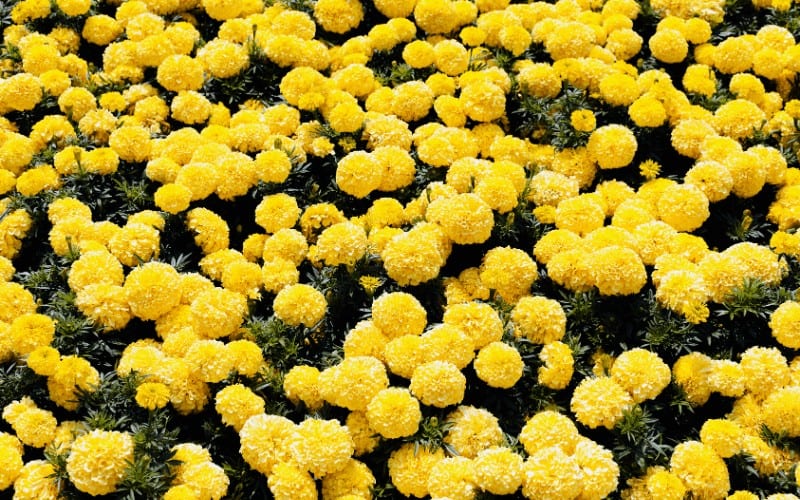
Yes, marigolds (particularly, French Marigolds) are a perfect companion plant for cantaloupes. The strong scent of marigolds repels most insects and pests that may affect your cantaloupe.
Marigolds are proven to repel natural pests like aphids, flies, squash bugs, nematodes, and beetles. So, it is a good plant to grow in proximity to cantaloupe.
2. Tansy
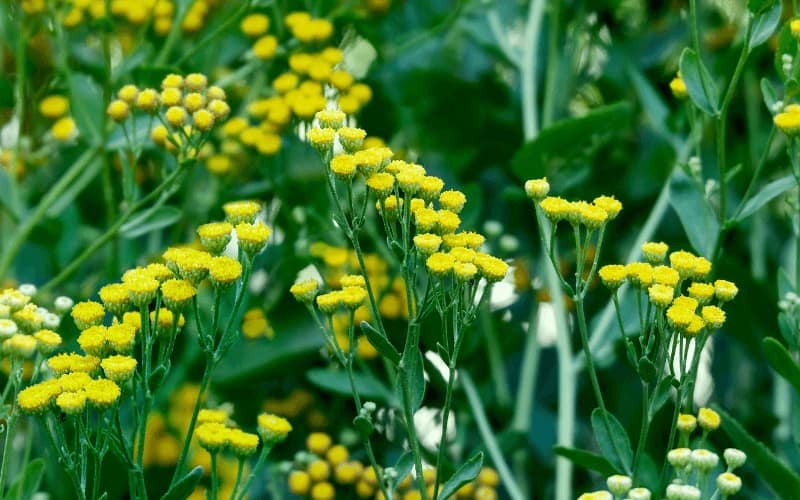
Do you know pretty much about Tansy? Well, this plant is a good companion plant for your cantaloupe. It is proven to help protect cantaloupes against striped cucumber beetles, squash bugs, flying insects, and even ants.
Tansy deters a number of natural pests that may affect the growth of your cantaloupe. As a common deterrent for a variety of flying insects, it is advisable to choose tansy as a companion plant for cantaloupe.
However, it is advisable to cut back tansies that were cultivated around your cantaloupes, when they grow too large.
Tip: Tansy can be used as a natural fly repellent in the house when it dries after being cut down.
3. Nasturtium
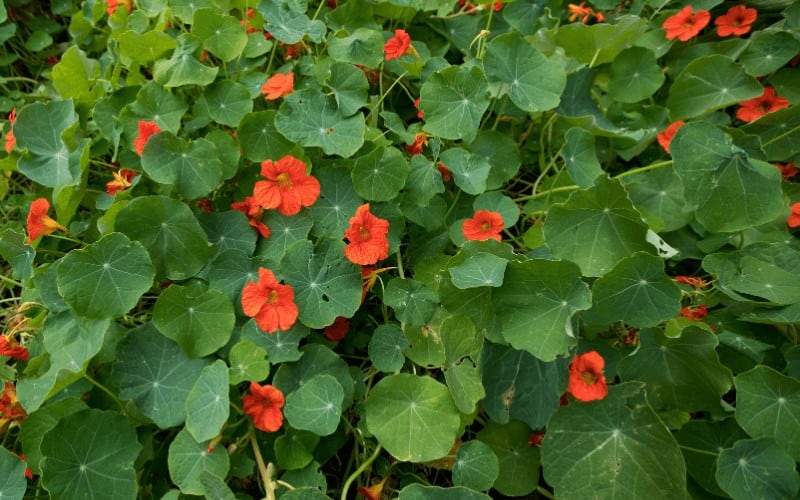
Nasturtium is also a good plant that is completely safe to plant side by side with cantaloupes. It is a proven natural pest deterrent; very powerful and effective.
More so, nasturtium is not also planted as a companion plant for cantaloupe, it also serves as a companion plant for tomatoes, broccoli, etc.
When you grow Nasturtium near cantaloupes, it distracts acts, leafhoppers, and whiteflies, as well as repels pests like aphids, squash bugs, and striped cucumber beetles.
Furthermore, it is argued that Nasturtium has the tendency of boosting the flavor profile of your cantaloupes, as well as contribute to their healthy growth in general.
This plant is either planted as a barrier around cantaloupe plants or planted in pots and kept in strategic places throughout the garden.
Well, it is also important to say that nasturtium can actually attract predatory insects, but studies show that the insects won't harmfully affect your cantaloupe plants, instead, they help to control the population of other insects in your garden.
4. Collard greens
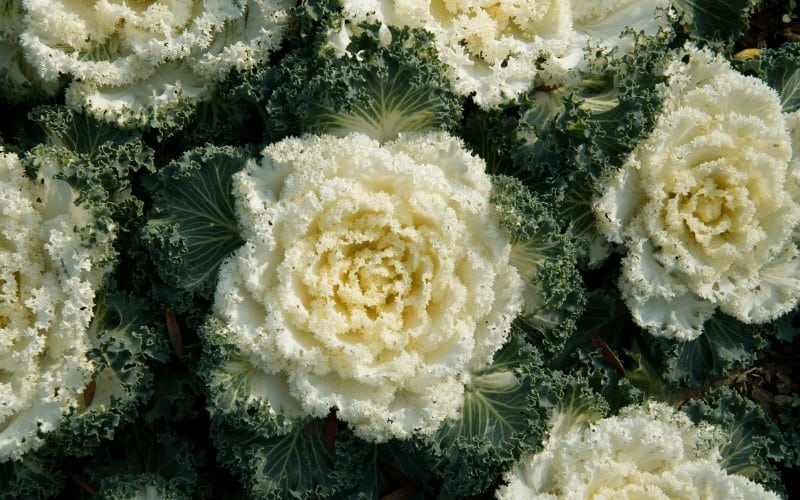
It is proven that collard greens are a perfect companion plant for cantaloupes. They can actually repel aphids; thus, prevent the sap-sucking insect from infecting your cantaloupe with black fungus and generally affect your plant’s growth.
You can grow cantaloupes and collard greens, it's safe.
5. Lettuce

Yes, lettuce, as well as other shade-tolerant plants are good to grow as cantaloupe companion plants.
Although lettuce is a shallow-rooted plant, its shade-tolerant traits can help protect your cantaloupe from a couple of natural situations that could affect production.
Other similar plants like lettuce can help to protect your cantaloupe plant without taking much root space. won't take up much space. Thus, your cantaloupe vines will still have enough space to spread.
6. Catnip
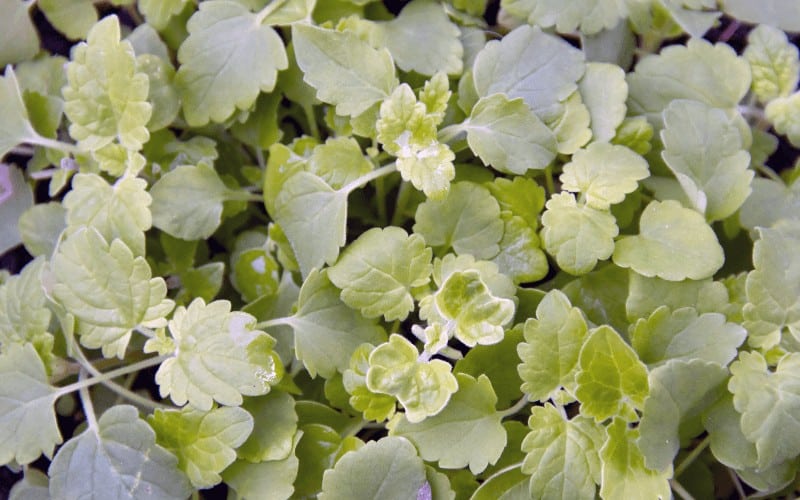
Catnip is a pungent plant that can repel flies, aphids, squash beetles, and leafhoppers, and this makes it a good companion plant for cantaloupes.
7. Corn

Corns are also a good companion plant to most other plants. Its tall nature helps to suppress weed growth and nurse the plants it's protecting.
Other Cantaloupe Companion Plants
Below are other cantaloupe companion plants:
Others are: oregano, sunflower, sage, tarragon, brussels sprouts, cauliflower, and carrots.
What Not To Plant With Cantaloupe
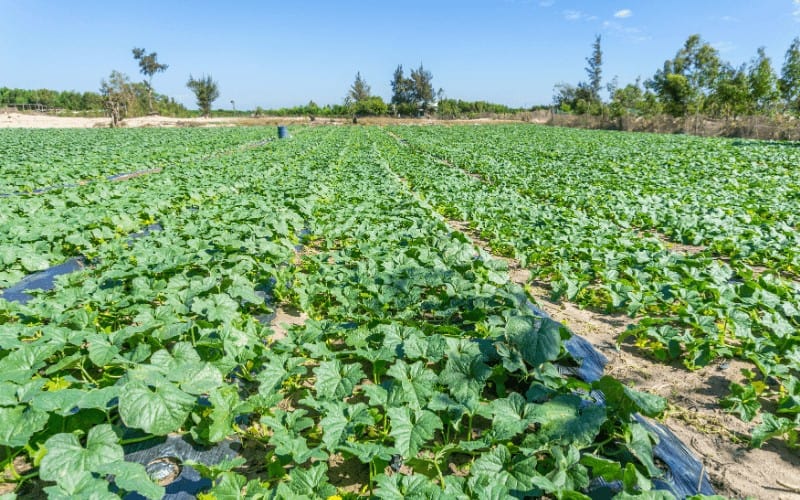
We've been talking about plants that are good to plant alongside your cantaloupe; however, there are some companion plants you shouldn't try, regardless of any reason. This is because such plants may hinder the growth of your cantaloupe.
Again, just as humans naturally do not pick their relatives as life partners, plants do not always like to grow alongside their cousins/relatives from the same plant family.
For example, it is not advisable to plant cantaloupe and watermelon because they are relatives and won't perform well if planted together.
More so, both watermelon and cantaloupe attract the same pests; this means that cultivating the two will lead to more exposure to pests. They may also compete for space, nutrients, light, and other vital things.
Another plant to keep in check is potatoes. It is not advisable to plant potatoes close to cantaloupes because they'd compete for many important factors needed for healthy growth and production.
Cucumber is also among the list of the worst companion plants for cantaloupes.
Read Also:
- Best Watermelon Companion Plants
- Companion Plants For Sweet Potatoes
- Turnip Companion Plants
- Companion Plants For Eggplant
- Companion Plants for Pumpkin
- Companion Plants For Blue Star Creeper
Conclusion
Apparently, this article has mentioned the best and worst companion plants for cantaloupe. Now, you can go ahead and plant your favorite plant in a way that you'd achieve more yield without having to combat natural pests with chemicals.
Cantaloupe has a lot of benefits to offer and they are among the most cultivated plants in the Cucurbitaceae family.




